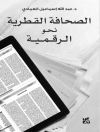’If you want a book that instructs you about all the technical skills you need to pass the examinations set by the National Council for the Training of Journalists (NCTJ) and embark on a career in journalism, then this is the book for you. It outlines the basic knowledge required to succeed as a trainee reporter. Shorthand, intros, writing styles, subbing, layout, the way newsrooms work and how to find things out are among the range of skills described.’
– Times Higher Education
’Precisely what it says on the cover – a down-to-earth essential handbook for anyone embarking on a career in journalism. All you need to know about avoiding newsroom minefields and attracting the editor′s attention for the right reasons. If only it had been around in my day!′
– Bob Satchwell, Executive Director, Society of Editors
This is a book for everyone who wants to be a journalist: a practical guide to all you need to know, learn and do to succeed as a trainee reporter in today′s newsroom.
Although the world of journalism is changing fast, as technology blurs the boundaries between newspapers, radio, television and web-based media, the reporter′s core role remains the same: to recognise news, communicate with people, gather information, and create accurate, balanced and readable stories. Essential Reporting, written by an experienced NCTJ examiner, explains how to do this. Contents include:
- what makes a good reporter
- what is news, and how to find it
- how newsrooms work
- day-to-day life as a reporter
- key reporting tasks
- covering courts and councils
- successful interviewing
- writing news stories
- specialist reporting
- handling sound, pictures and the web
It also contains a wealth of advice, tips and warnings from working journalists, a guide to NCTJ training and examinations, a glossary and a guide to further reading.
It will be invaluable to anyone embarking on a career in journalism and is the NCTJ′s recommended introductory text for all students on college and university courses preparing them to become successful reporters.
Innehållsförteckning
What you Need
Character, Attitude, Knowledge, Skills, Equipment
What′s News?
What News Stories Have in Common – and Why Some Get Printed
Finding Out
News and Information Sources
A Day in the Life
What it′s Like Being a Reporter
First Tasks
Handouts, Calls, Weddings, Anniversaries, Retirements, Deaths
Out and About
Public events, Speeches, Meetings, Press conferences, Pictures
Talking to People
Vox pops, Ring-rounds, Surveys, Interviews, Death knocks
The Unexpected
Major incidents, Weather stories, Human interest
Shaping the Story
Story length, Structure, Angles, Intros
Writing the Words
News stories, Writing for pictures, Presentation
English Matters
Grammar, Punctuation, Spelling, Style
Working Online
Reporting, Writing, Designing, Interacting
Audio and Video
Multi-media, Audio & Radio, Video & TV
Court Reporting
Courts, Inquests, Tribunals, Inquiries
Local Politics
Contacts, Councils, Town halls, Political parties, MPs, Elections
Specialist Areas
Sport, Crime, Education, Environment, Health, Industry, District reporting
Features
News backgrounders, Entertainment features, Reviews
Training
A guide to the NCTJ












